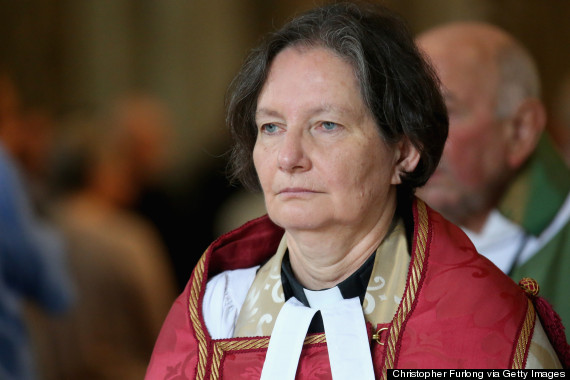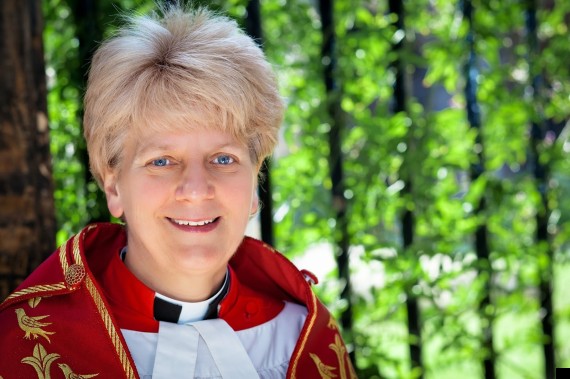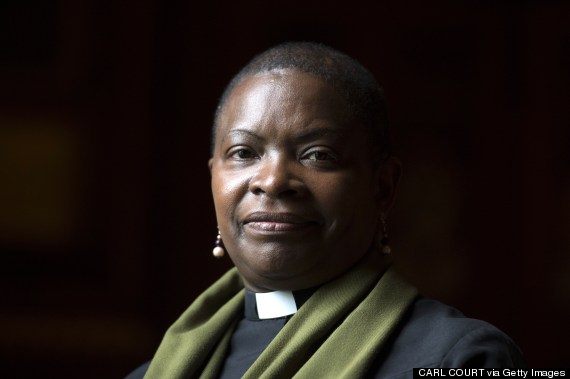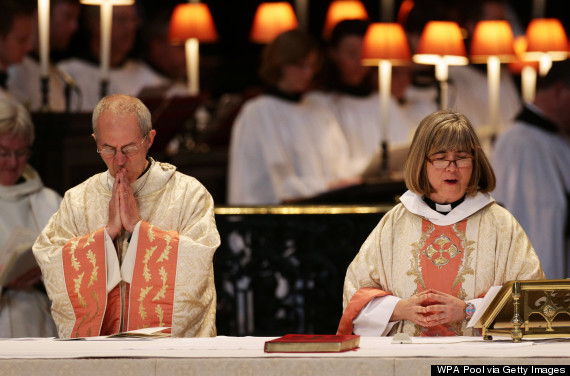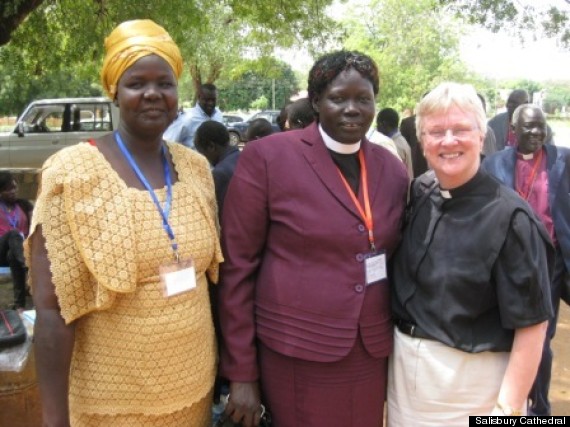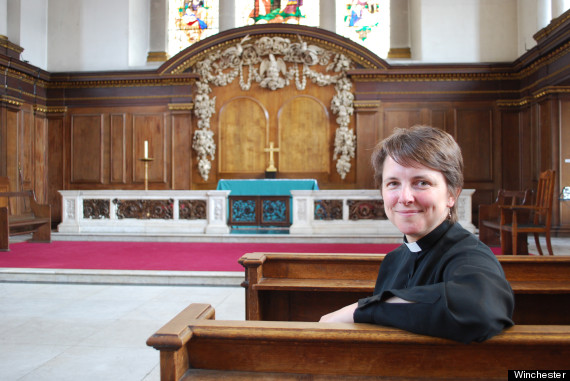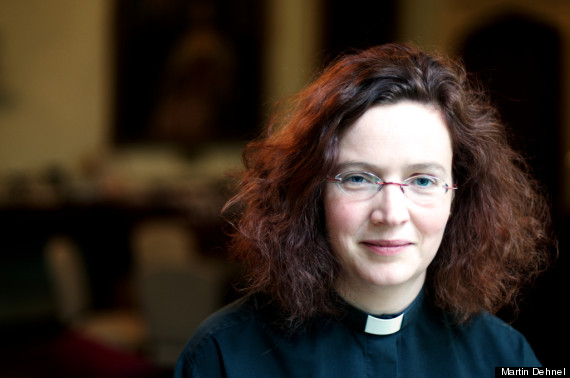The Church of England has finally endorsed women bishops, after years of bitter struggle, as the General Synod gave the legislation a resounding majority.
All three houses, the Bishops, the Clergy and the Laity voted in favour of allowing women to take the top jobs in the church, after the Laity dramatically rejected the motion in 2012 by just six votes. This time, more than 80% backed the motion. A two-thirds majority is needed in all three houses for a motion to pass.
The first woman bishop could potentially be appointed by the end of the year, the Church said in a statement after the vote.
It has been a long slog for the Church of England to push through the measure. Women priests were first proposed as concept in 1975, but it was only in 1992 that the Synod approved the measure. Then the road to women bishops should have been straightforward, but the legislation was derailed in November 2012, causing shock and bitter recriminations within the Church of England and prompting threats of an intervention by Parliament.
The arduous nature of the debate and crawling pace of change did not go unnoticed at the Synod today. Opening the debate in York today, John Sentamu, the city's archbishop, said that Synod ought to be getting the hang of this now, to chuckles from the floor. He warned those planning to speak at the debate against "tedious repetition".

Female members of the clergy join the queue to enter the Church of England General Synod in York
Yet the tone of the debate was far more congenial than two years previously. Many came to the debate today with stories of how they had changed their minds. Thomas Sutcliffe, a member of the house of laity, pointed out that the two countries in the World Cup final, as well as their Brazilian hosts, were governed by women.
"We do believe that we must act on our conviction that the church now needs the special and different gifts of women," he said, adding that the proposal does not demand that there be gender equality in numbers. Female bishops will be "normal and routine … an unremarkable normality" he said.
Julian Henderson, the bishop of Blackburn, said he would now back the proposal "enthusiastically" because of the safeguards put in place since he opposed the measure in 2012.
Berwick reverend Janet Appleby agreed, saying she was "glad" the proposal had previously failed because the new motion was "much better".
But many others said their convictions against women bishops remained the same, including John Goddard, the Anglo-Catholic bishop of Burnley, the house of laity's Jane Patterson, a conservative evangelical, and St Peter's Harold Wood vicar David Banting, who said the proposal removes his "unique calling to be a man".
Jane Bisson, a member of the laity from Winchester, said that Bible made Mary Magdalene a disciple of Jesus but she was secondary to the men, she was not an apostle. Urging members to vote against the measure, she said of Christ: "His direction should be the final direction we should take."

Delegates discuss issues during the afternoon session of the annual Church of England General Synod at York University
Chik Kaw Tan, a member of the house of laity, said the whole argument was about political correctness, and that the same 'cultural norm' arguments were used to legalise gay marriage, which he opposes.
For some, the vote sends a message that women can go to the top of their careers in the church. Emma Ineson, a member of the house of clergy and principal of Trinity College, Bristol said she saw women training to be priests who "could have chosen to do almost anything else with their lives."
"A clear vote in favour today would send a very clear message to that the church to which they've offered themselves says yes to them, values them, sees their potential," she added.
But many fear that those who oppose the measure will now be demonised within the church and a schism will emerge. During the debate Prudence Dailey, a member of the house of laity, said it would be "hard for me to forget the amount of bile, vitriol and disapprobation heaped upon the heads of us who voted against".
It was the key concern of Susie Leafe, one of the leaders of the church's Reform group which opposes women bishops. She said the outcome of the consultation since 2010 had been that "the majority ended up telling the minority what was good for them. We are told not to complain, not to risk the motion being defeated."
The Bishop of Rochester, the Rt Rev James Langstaff, said that it was important the church represented the view of the vast majority of its members. "Wherever each of us stands on the spectrum of views, I want to suggest today that we have a responsibility to be guided, yes, by what we ourselves think, but also by what we assess to be the settled view of the great majority within the Church of England," he said.
That was the feeling of Adrian Vincent, of the house of laity, who said that although he personally opposed women bishops, he would vote in favour because of the strength of feeling in the Church's members.
The Archbishop of Canterbury, the Most Rev Justin Welby, said as he closed the debate that Church of England bishops were committed to keeping their promises to evangelicals.
"I expect and hope that this vote will go through and I rejoice in it. But I also rejoice that we promise to seek the flourishing in the Church of all those who disagree," he said. "If I did not think that was likely I could not support this legislation. You don't chuck out family or even make it difficult for them to be at home, you love them and seek their well-being even when you disagree. The House of Bishops means what we say."

The Archbishop of Canterbury Justin Welby chats to members of the female clergy before a Eucharist Service at York Minster
The Archbishop of York, Dr. John Sentamu, who oversaw the vote, called it “a momentous day".
"Generations of women have served the Lord faithfully in the Church of England for centuries. It is a moment of joy today: the office of Bishop is open to them. To those who ask 'what took you so long?' my answer is that every decision has a cost and there will be those within our body who will be hurting as a result of this decision. Our answer to the hurting should not be 'get over it' but rather 'we will not let go until you have blessed us.'"
Welby said that the vote was a "completion of what was begun over 20 years".
"The challenge for us will be for the church to model good disagreement and to continue to demonstrate love for those who disagree on theological grounds. As delighted as I am for the outcome of this vote I am also mindful of those within the Church for whom the result will be difficult and a cause of sorrow," he added.
The new simplified legislation includes a declaration by the Church of England bishops outlining arrangements for parishes who do not accept the authority of a woman bishop. An ombudsman will be appointed to help resolve disputes. Mediation and conflict management experts were brought in last year to help resolve differences between Anglo-Catholics and conservative evangelicals opposed to women's ordination and supporters of women bishops.
The plan will now go to the ecclesiastical committee of Parliament and the House of Commons and House of Lords for consideration before royal assent is given.
The General Synod would then meet on November 17 to formally declare that women can be bishops. Today, it also voted to amend canon legislation, so there will be no distinction between men and women in church law.
Women now make up about a third of all clergy. There are six female cathedral deans and more than 20 women archdeacons. Southwell and Nottingham diocese, which has a vacancy after its bishop the Rt Rev Paul Butler was appointed as Bishop of Durham, would be the first diocesan see where a woman could be appointed. Retirements have also been announced in the Sees of Gloucester, Newcastle and Oxford.
WHO COULD BE THE WOMEN BISHOPS?
The Very Rev Vivienne Faull, 59, Dean of York Minster
Ms Faull is widely believed to be the favourite to be appointed as first woman bishop in the Church of England. She studied at the Queen's School Chester and St Hilda's College, Oxford, and was among the first batch of more than 1,000 women ordained in the Church of England.
A former chaplain to Clare College, Cambridge, Ms Faull was the first woman to hold such an appointment at either Oxford or Cambridge universities. In 2000, she became the first woman appointed to run any English cathedral when she was made provost of Leicester Cathedral. She was named dean of York Minster in 2012, with a staff of 160 and 600 volunteers to coordinate.
When she started as a priest, Ms Faull said it was not unknown for a woman to be forbidden to take funerals because as she once explained: "The local population took the view that if a woman led the funeral service, how would you know that you were properly dead?"
The Very Rev Dr Jane Hedges, 58, Dean of Norwich
Dr Hedges, former Canon Steward of Westminster Abbey and Archdeacon of Westminster, was installed last month as Dean of Norwich. At Westminster Abbey, Dr Hedges had responsibility for welcoming the abbey's millions of visitors and pilgrims every year. She was frequently seen at high-profile services in Westminster Abbey, greeting and accompanying senior members of the Royal Family.
Dr Hedges received widespread coverage when she became the first clergywoman to shake hands with Pope Benedict XVI when he attended a prayer service at Westminster Abbey on his visit to Britain in 2010. She was among the first group of women to be ordained in 1994.
The Rev Rose Hudson-Wilkin, 52, chaplain to the House of Commons, a chaplain to the Queen and vicar in two inner city parishes in Hackney, east London
The first black female chaplain to the House of Commons is known for her forthright manner and once reportedly kept a cricket bat next to the door at her east London vicarage for protection against aggressive late night callers.
Ms Hudson-Wilkin was born and brought up in Montego Bay, Jamaica, before settling in the UK in 1985.She worked in the Midlands before moving to London. She told The Sunday Telegraph in 2012: "I have no ambition to become a bishop.”If there are people sitting around, men and women, dying to be bishops, then they must have very sad lives."
Canon Philippa Boardman, 50, Canon Treasurer of St Paul's Cathedral
Among the first women to be ordained in the Church of England in 1994. Presided over the national service to mark the 20th anniversary of women's ordination in the Church of England in St Paul's earlier this year with the Archbishop of Canterbury, the Most Rev Justin Welby, acting as her deacon. Was made an MBE in 2011 for services to heritage in east London, in recognition of her work to renovate and re-open the Church of St Paul in Old Ford, east London.
She told the Guardian that she was wearing something purple - the colour worn by bishops - every day in a protest at the shock defeat of the women bishops’ legislation at the General Synod in November 2012.
The Very Rev Dr June Osborne, 61, Dean of Salisbury Cathedral (right)
Dr Osborne was the first woman to be made a dean of one of the Church of England's medieval cathedrals when she was appointed at Salisbury Cathedral in 2004. A graduate in social sciences from Manchester University and married to a QC, Dr Osborne worked as a deacon in the Church of England for 12 years before being ordained in 1994 among the first batch of women priests in the Church of England.
The Rev Lucy Winkett, Rector of James's Piccadilly, central London
A former professional singer, Ms Winkett has degrees in history and theology and has also studied at the Royal College of Music. She served her curacy in Ilford, east London, before being made canon precentor at St Paul's Cathedral. She is an author and a regular contributor to BBC Radio 4's Thought For The Day slot.In
When her appointment at St Paul's was announced in February 1997, it was criticised by the cathedral's chancellor John Halliburton, who was against the ordination of women priests. He said he did not regard Winkett as a priest and would not take communion with her. She was also reportedly spat at by members of the clergy at St Pauls.
Dr Miranda Threlfall-Holmes, 40, vicar of Belmont and Pittington, Durham
Dr Threlfall Holmes, a historian, is a prominent campaigner for women bishops. She was a university chaplain and research fellow at University College, Durham, and was interim principal of Durham University's Ustinov College.
An avid user of social media, Dr Threlfall-Holmes compared the Church of England to an abusive husband on her blog in 2012 following controversial last-minute changes to the draft legislation introducing women bishops.
She later withdrew the posting. She is said to be a former atheist who became a Christian while at Cambridge University.
